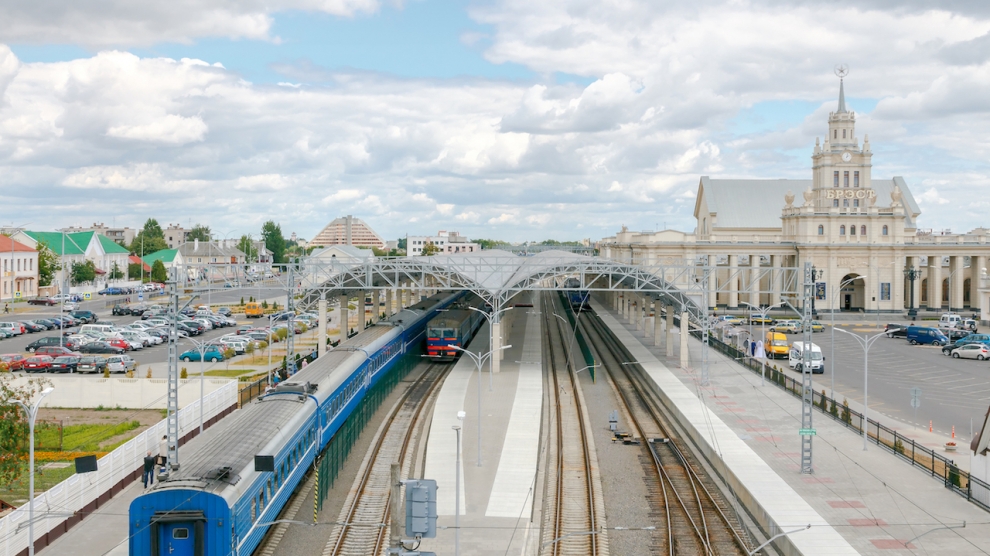Back in the year 2000, I had literally just finished a project in the HoReCa sector (the food and beverages service) in Ukraine. Twenty minutes after landing at Brussels airport, I received a call from a Belgian company. They asked if I was interested in restructuring a wood processing company in Russia.
As a specialist in the FMCG (fast moving consumer goods) sector, I was not particularly keen to try something so extremely new. Then I reminded myself that the basic rules behind how start-ups and business projects operate, in general are quite similar, so the sector doesn’t really matter that much. I also thought it would be nice to go back to Russia, where I had already worked, for six years, on an interesting retail and wholesale project. The thing is I didn’t end up going to Russia — after signing the contract I was told the plant that needed restructuring was in Minsk, Belarus.
To be perfectly honest with you, the name of the country meant nothing to me. It was a black hole. This will be a challenge, I thought. It was a challenge I faced— I restructured the business and made the company into a highly profitable one and, most importantly, I still live here! It was not an easy job and I had many difficult moments, as well as lonely periods, but I started to love the country and Belarusians.
The Belarusians are more European than Russian, in their mentality. Of course, there is a big difference between the urban and the rural populations, but overall, you find highly-skilled, exceptionally talented and motivated people but at the same time as impossible workers and bureaucrats, who prefer to follow the old Soviet style of living (including the cheap vodka). Fortunately, this latter group is dying out and most of the time they can also be avoided.
In general, I would say, stability and order are the key words to describe Belarus. My guests have always been impressed by how clean and orderly Minsk is. Some friends even called Belarus the Switzerland of the CIS countries (Commonwealth of Independent States). Compared to other countries in the region, Belarus has a very low level of corruption and crime.
In the 2000s Belarus was still very isolated — a business network similar, to those in Moscow and Kyiv, was non-existent. Fortunately these days, the foreign business community is much more active and many new business networking events are taking place in Minsk.
After 22 years’ experience in doing business in Belarus, Russia and the neighbouring countries, I don’t understand why so few foreign investors, who are interested in the region, operate from Belarus because it is far easier to so from Belarus. Isolation and the country’s negative image have played their role in this. Today, after the very successful hockey championship; the economic situation, which resulted from the recession in Russia and the European Union’s sanctions having been mostly lifted, I would expect more changes to take place. This underdevelopment could not have lasted for ever. There are many great opportunities here and even more development, which you can see with your own eyes and even be a part of. It’s the last country in Europe where one can still do that.
There are already a few foreign investments but the situation is still extremely modest. Why? Well, you can achieve a great return on your investment but you have to keep a low profile. Sometimes, access to material (wood, milk, waste, etc.) is also not easy. It is often monopolised by the state. Start-ups and operational issues are less problematic, as there is far more useful business information and outsourcing opportunities for the business. It is possible to start a business, even tomorrow, using outsourcing solutions and step-by-step you can start operating independently. The business climate has improved tremendously over that last few years and the authorities are showing a positive attitude towards business.
Belarusian companies are interested in western technology. The biggest problem is export financing and insurance. The currency controls oblige prepayment, which can only to be avoided by blocking the same amount in currency (at high interests). In spite of the sanctions’ lifting, EU officials haven’t realised many concrete actions and each country has its own policy.
Overall, my advice to foreign companies is just to come and see. Visas, the language and culture should not be barriers and are easy to overcome. I can quote Julius Caesar ‘veni, vidi, vici.” You will too, just come!
_______________
The views expressed in this opinion editorial are the author’s own and do not necessarily reflect Emerging Europe’s editorial policy.

